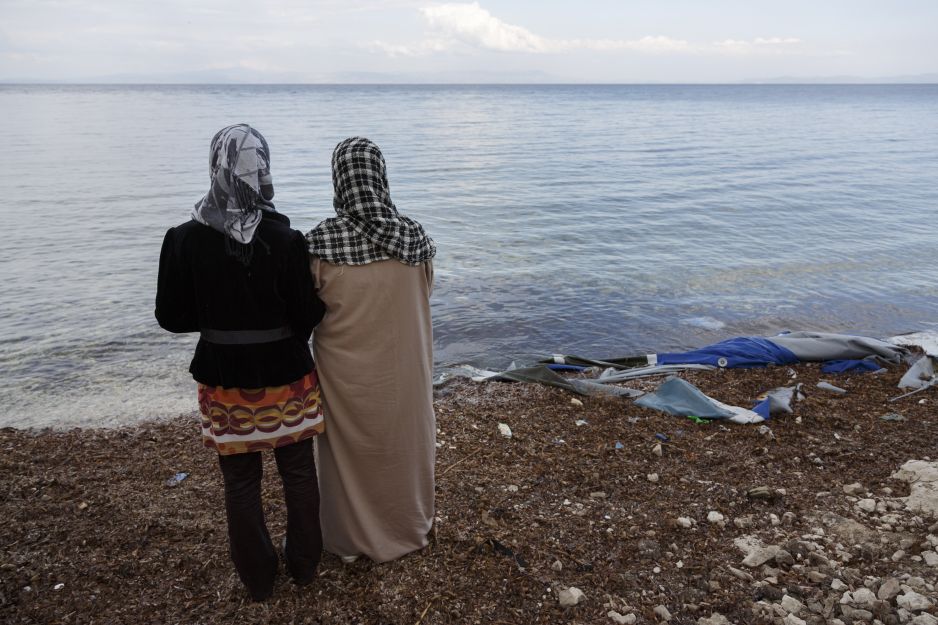The Diotima Centre, a recognized and specialized body on issues of gender violence, expresses its deep concern about the significant increase, in the last six months, of survivors of gender violence – asylum seekers, living in conditions of homelessness in Athens.
As recorded in the data of the Agency’s Gender Violence Incident Management Service, which operates in the capital city within the framework of the “Prevention and Response Programme on Gender Violence in the Urban Area” funded by the UNHCR in Greece, the conditions of homelessness under which survivors of gender-based violence live dramatically increase the risk of re-exposure to various forms of sexual violence.
Characteristically, 1 in 3 survivors reports that they have been raped while homeless.
These are refugee women who have already suffered multiple forms of gender-based violence in their country of origin, during the journey, and in Greece before arriving on the mainland. Many of them are burdened with torture, face serious health problems, and are often single mothers.
In numbers
The SGBV Case Management Service served during the six months of June – November 2019, 134 survivors of gender-based violence residing in the urban area of Athens, providing psychosocial support, legal assistance, empowerment, and escort services by specialized professionals.
Of the total number of beneficiaries served, it was found that 73% were in homelessness, while only 26% were in a housing program. Their living in unsafe housing conditions was found to be directly related to the existence of new cases of Gender Based Violence (GBV).
Specifically, of all homeless survivors, 44% reported being temporarily hosted by unknown persons, in a house where many more unknown persons usually live. 39% reported staying on the street, 11% reported being temporarily housed and paying a fee for money or services. Finally, 6% were recorded as staying in informal forms of accommodation.
In the process of providing psychosocial support, it was observed that homelessness causes or intensifies the psychosocial problems of the survivors. In addition, of the total number of homeless women served, 37% reported having suffered one or more incidents of gender-based violence directly related to homelessness.
In particular, 77% of women report that they have suffered sexual violence during the time they have had to live on the street or were “hosted”. In particular, 39% were raped, 33% suffered sexual harassment, and 5% sexual assault/attempted rape.
The remaining 20% were women who were subjected to intense psychological pressure (3%) or threatened and/or forced to have sex (17%) in order to be allowed to continue staying in the accommodation where they were “hosted”.
Finally, a few incidents of physical violence (3%) were reported.
Demographic data
About 64% of homeless women survivors come from African countries (28% from Cameroon, 28% the Democratic Republic of Congo, and 3% each from Ivory Coast, Sierra Leone, and Morocco), followed by women from Iran (about 22%), Pakistan (5.56%), and finally a small number of women from Lebanon, Syria, and Afghanistan.
In terms of age, the vast majority (94%) are between 18-40 years old and in terms of legal status, 83% have applied for asylum.
We call
Based on the above, we call on the competent state institutions and in particular the Ministry of Migration Policy and the General Secretariat for Migration and Refugees to take specific measures for the housing of survivors of gender-based violence – asylum seekers. It is necessary for the State to respond immediately to its obligations and provide safe and decent housing conditions, as defined by the existing legal framework (Law 4375/2016 as amended and in force after Law 4636 /2019), for all asylum seekers and in particular for survivors of gender-based violence, in order to avoid re-exposing them to risk and to reverse the non-protection status that has accompanied refugee women and girls since the beginning of their journey.
Diotima Centre
16/01/2020





